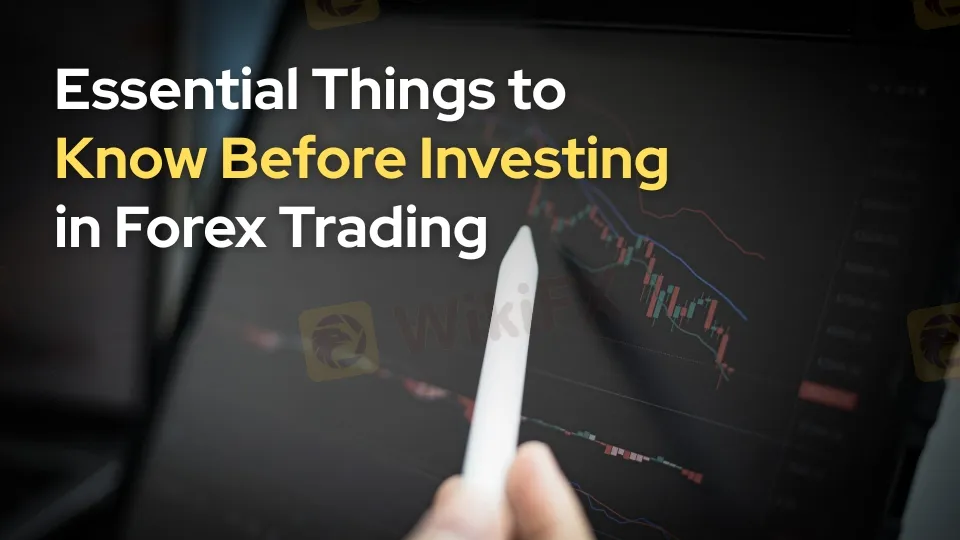Abstract:Learn forex trading basics: currency pairs, brokers, risk management, analysis, and avoid beginner mistakes. Start smart with this guide!

1. What is Forex Trading? A Beginner's Guide to Understanding the Market
Before you start forex trading, it‘s important to get the basics of the market down. Forex, which stands for foreign exchange, is the global space where people trade currencies. It’s the biggest and most active money market out there, with over $6 trillion traded every day. In forex, people buy and sell currencies in pairs, like EUR/USD (Euro/US Dollar) or GBP/JPY (British Pound/Japanese Yen).
Key Concepts in Forex Trading:
- Currency Pairs: Forex trading is all about currency pairs. These are two currencies traded against each other. The first one is called the base currency, and the second is the quote currency. For instance, in EUR/USD, the Euro is the base, and the U.S. dollar is the quote.
- Exchange Rates: An exchange rate shows how much one currency is worth compared to another. It changes based on things like economic news, political events, or how people feel about the market. For example, if EUR/USD is 1.15, it means one Euro equals 1.15 U.S. dollars.
- Market Hours: The forex market runs 24 hours a day, five days a week, across different time zones. Its split into big trading times: Sydney, Tokyo, London, and New York sessions. The busiest hours happen when London and New York overlap.
Why is Forex Trading Significant?
The forex market matters a lot for world trade and business. It helps companies swap currencies to buy goods and services across borders. For regular people, its a chance to make money from currency price changes. Forex trading is easy to get into, with many brokers offering tools to start with just a little cash.
2. How to Choose the Right Forex Broker: Red Flags and Key Considerations
Picking the right broker is one of the biggest choices you‘ll make in forex trading. With tons of brokers out there, you need to look at a few things to find one that’s safe and honest.
Key Considerations When Choosing a Forex Broker:
- Regulation: Make sure the broker follows rules set by a trusted group, like the U.S. Commodity Futures Trading Commission (CFTC), the UK‘s Financial Conduct Authority (FCA), or Australia’s Securities and Investments Commission (ASIC). These groups keep brokers in line to protect you.
- Trading Platform: This is the program you use to trade, watch the market, and check prices. Tools like MetaTrader 4 (MT4) or MetaTrader 5 (MT5) are popular and come with handy features. Pick a broker with a platform you like and that has stuff like charts, live data, and risk tools.
- Customer Support: Good help is a must in forex trading since problems can pop up. A solid broker should offer support 24/5 through phone, email, or chat.
- Fees and Spreads: Brokers earn cash from spreads, which is the gap between the buy and sell prices of a currency pair. Some also take a commission per trade. Go for a broker with fair spreads and clear costs.
Red Flags to Watch Out For:
- Unregulated Brokers: Stay away from brokers with no proper oversight. They might cheat by tweaking spreads or risking your money.
- Promises of Guaranteed Profits: Forex trading has risks, and no one can promise youll always win. Watch out for brokers bragging about big gains with no danger.
- Withdrawal Issues: Check if a broker makes it easy to take your money out. If people say withdrawals are slow or blocked, thats a bad sign.
A handy app called WikiFX can help you check if a broker is legit. It gives reviews, shows if theyre regulated, and rates them. Using WikiFX can guide you to a good broker and keep you safe from scams.

3. Risk Management in Forex: How to Protect Your Investments
Handling risk is a vital skill in forex trading. You can earn a lot, but you can also lose big if youre not careful. Good risk tricks can shield your money and keep you trading longer.
Key Risk Management Techniques:
- Stop-Loss Orders: This tool closes your trade automatically when the price hits a set point, stopping bigger losses. Its a top way to cap damage in forex.
- Position Sizing: This is how much money you put into one trade. Dont bet too much at once. A smart rule is to risk only 1-2% of your total cash per trade.
- Leverage: Leverage lets you trade more with less money. It can boost wins but also make losses worse. Use it wisely and dont overdo it.
- Diversification: Spreading your trades across different pairs or styles lowers your risk. It stops one bad event from hitting all your money.
By keeping risks in check, you can guard your cash from the markets wild ups and downs.
4. The Importance of Technical and Fundamental Analysis in Forex Trading
Forex trading leans on two big ways to guess market moves: technical and fundamental analysis. Each works differently, and knowing both helps you trade smarter.
Technical Analysis:
This is about studying price charts and using tools like moving averages, Relative Strength Index (RSI), or Bollinger Bands to guess what‘s next. Technical traders think past prices show what’s coming.
- Charts and Indicators: Traders use charts (like lines or candlesticks) and tools to spot trends, speed, and ups and downs.
- Support and Resistance: These are price spots the market struggles to pass. Spotting them helps you decide when to buy or sell.
Fundamental Analysis:
This looks at money and world news that move currency prices, like interest rates, inflation, GDP, or big events.
- Economic Indicators: Reports on jobs, prices, or bank moves can shake the market. Traders use these to plan ahead.
- Geopolitical Events: Things like wars, trade fights, or global news can change prices. Keeping up with the world helps here.
Mixing technical and fundamental analysis gives you a fuller picture and boosts your odds of winning.
5. Common Mistakes to Avoid as a Forex Beginner
Newbies often slip up and lose money. Knowing these slip-ups and how to dodge them can set you up for better luck in forex trading.
Common Mistakes to Avoid:
- Emotional Trading: Letting fear or greed drive you can mess things up. Stick to your plan and skip rash moves from quick market shifts.
- Overleveraging: Leverage can grow your wins, but it can also tank your account fast if things go wrong. Beginners often use too much and pay for it.
- Lack of a Trading Plan: Trading with no clear path is asking for trouble. A good plan covers when to start, stop, manage risks, and aim for gains.
- Neglecting Risk Management: Skipping stop-losses or smart sizing can lead to huge losses. Always watch your risk to save your money.
Conclusion
Forex trading opens doors for investors, but it takes knowing the market, staying steady, and guarding your cash. By learning the ropes, picking a solid broker, handling risks, using technical and fundamental tricks, and skipping newbie errors, you can do better in this lively market. Tools like the WikiFX app can also help you check brokers and avoid traps. Keep in mind that winning at Forex takes time and effort, so stay patient and keep learning.















